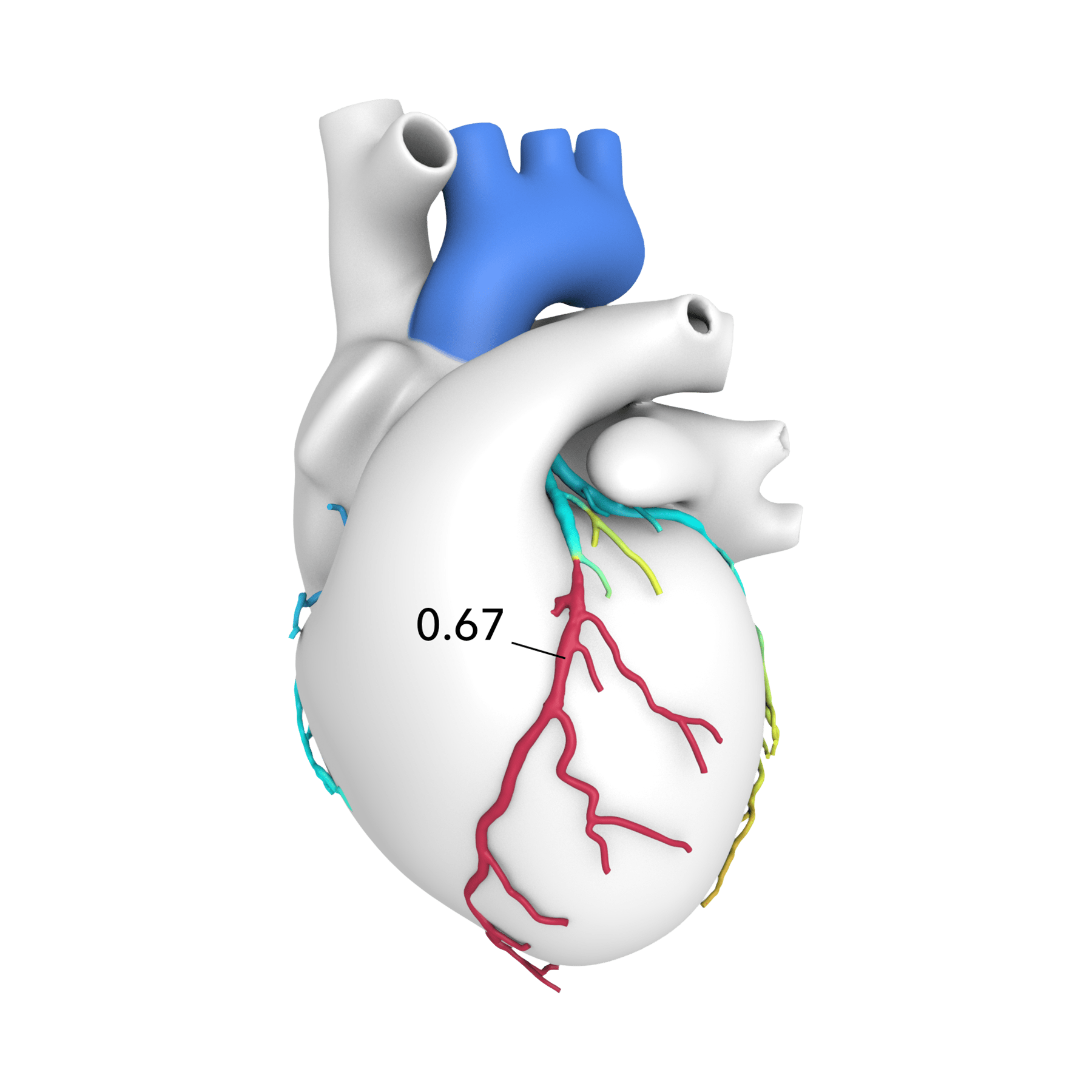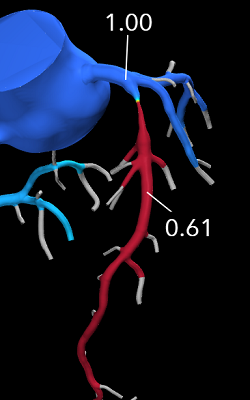Cardiac Computed Tomography (CT)
Wellstar is a leader in researching and using the most advanced technology to evaluate and diagnose heart conditions.
Leaders in Advanced Heart Screening & Diagnostics
Wellstar is a leader in the country—and the only health system in Georgia—with the ability to perform plaque and flow analyses on all coronary CT angiograms. Beyond calcium scores or detection of ischemia by stress testing, we are able to assess for high-risk, noncalcified plaque, which is the culprit for most heart attacks. Many patients can then receive preventive therapies before experiencing a heart attack, stroke or limb ischemia due to severe blockages in the lower extremities.
Heart health testing
At Wellstar, cardiovascular computed tomography (CT) is the preferred method to evaluate risk and diagnose heart disease. There are two types of CT imaging exams to evaluate the heart:- Coronary CT angiogram (CCTA). This test can diagnose the cause of chest pain and aid our ability to assess cardiovascular risk. If a blockage is detected, our team pairs this test with an advanced tool called HeartFlow Analysis. CCTA gives patients the most accurate diagnosis with the least invasive methods. Wellstar is the first and only HeartFlow Platinum site in Georgia.
- Coronary artery calcium scoring. This test helps assess the risk of heart disease in people without symptoms.
Coronary CT angiogram (CCTA)
Wellstar uses leading technology to perform CCTA on people who have symptoms of heart disease. This specialized, non-invasive imaging evaluates heart structure and function. Combined with intravenous contrast, CCTA provides detailed images of the heart, coronary arteries and surrounding structures. This technology allows heart care providers to assess and diagnose many cardiovascular conditions that previously required a more invasive cardiac catheterization.CCTA, which must be ordered by your heart care provider, is used for patients exhibiting symptoms of heart disease. It assesses:
- Early detection of plaque before severe blockages are present
- Extent of coronary artery narrowing or blockage
- Heart function and heart valves
- Problems with the aorta, such as an aneurysm (when a blood vessel bulges out) or dissection (when layers of the aortic wall peel away from each other)
- Pulmonary veins
- Pericardial disease involving the pericardium, the sac surrounding your heart
Fractional flow reserve (FFR) analysis
 When it comes to heart disease, Wellstar is advancing diagnosis to be both highly accurate and non-invasive. Advanced HeartFlow Analysis technology helps our heart experts create the most personalized treatment plan for each patient.
When it comes to heart disease, Wellstar is advancing diagnosis to be both highly accurate and non-invasive. Advanced HeartFlow Analysis technology helps our heart experts create the most personalized treatment plan for each patient.After a CCTA identifies a blockage, our heart specialists can order a new type of FFR assessment. As the first and only HeartFlow Platinum site in Georgia, we combine CT imaging with powerful computer algorithms to create a personalized 3D model of your coronary arteries. This details how each blockage impacts blood flow to the heart. FFR was previously only available through an invasive procedure.
Find a location near you
Wellstar’s expert cardiac imaging team aims to provide patients with fast exam times and precise results.Learn more about cardiac imaging at Wellstar or find a location near you.
Coronary artery calcium scoring
Calcium in the coronary arteries may be an early sign of coronary heart disease. A coronary artery calcium scoring test—also known as a heart scan or heart screening—detects and evaluates a person’s calcium deposits, or calcified plaque. The fatty substance narrows the coronary arteries and limits blood flow to the heart.
A coronary artery calcium score measures a person’s risk for cardiovascular disease. It is not used to diagnose current symptoms. Learn about your risk by scheduling an appointment through the
Know Your Heart Screening Program
at Wellstar.
During the test, the CT scanner takes multiple pictures of your heart and combines them to show whether the coronary arteries are narrowed or blocked by calcium or plaque build-up. Certain forms of coronary disease—such as "soft plaque" atherosclerosis—are not detected during this type of scan.
First, the calcium score is calculated based on the volume and density of the calcium deposits. The lower the score, the less calcium is present. This indicates a lower likelihood of a heart attack.
- A score of zero suggests there is no calcium in the heart.
- A number between 100 and 300 signals a moderate amount of plaque deposits.
- Anything above 300 is a sign of severe disease and heart attack risk.
Your healthcare provider will review these results and discuss them with you. Based on these scores, your physician will rate your risk for cardiovascular disease and design a customized heart care plan so your heart can be its healthiest.
Who should get a calcium score screening?
You should consider a calcium scan if you are 40-70 years old, don’t currently have heart disease symptoms and are at an increased risk for heart disease based on one or more of these factors:
- Family history of heart disease
- Past or present smoker
- High cholesterol
- High blood pressure
- Diabetes
- Overweight
- Inactive lifestyle


